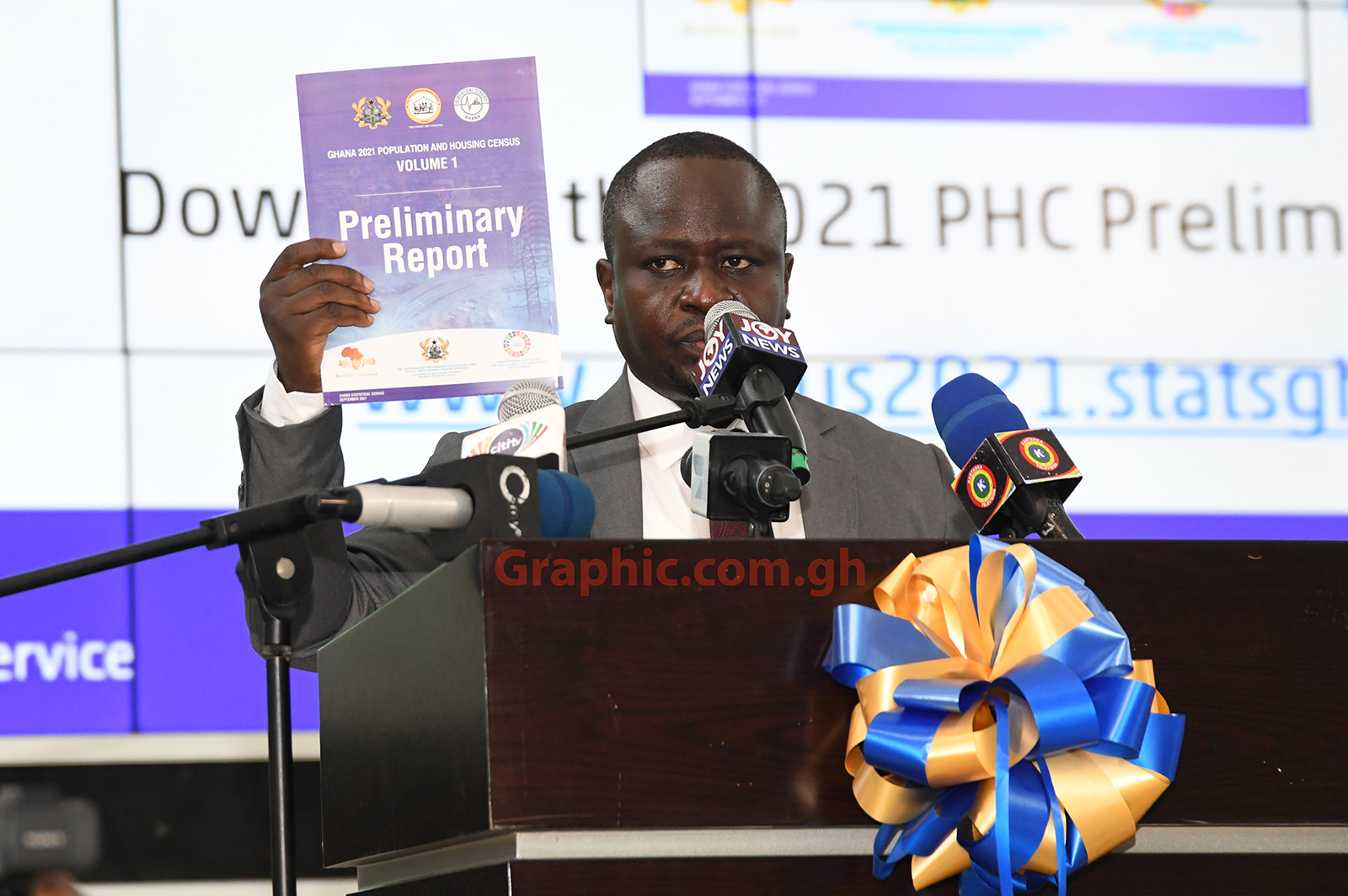Greater Accra is now the most populous region in Ghana, the provisional results of the 2021 Population and Housing (PHC) census has revealed.
It has overtaken the Ashanti Region which used to have more persons in Ghana.
- Related articles
- More females in Ghana than males - 2021 census results
- More females in Volta Region than others - 2021 PHC results
- Ghanaians are now 30.8million - 2021 census provisional results
Prior to the 2021 census, the Ashanti Region had since 1970 been the most populous region in Ghana.
The Greater Accra Region has 5,446,237 persons currently.
Ashanti has a population size of 5.432,485.
The Ahafo Region is the least populous region with a total population of 600,000.
Out of the 10.7 million structures counted, about 2O percent of them were metal containers, kiosks, and wooden structures.
The total number of Ghanaians in the country is now 30.8 million according to provisional results of the 2021 Population and Housing Census (PHC).
From 6.7 million persons in 1960, the population has increased to 30.8 million persons in Ghana in 2021.
From the provisional results from the 2021 PHC, Ghana's population has increased from 24.7million in 2010 to 30.8milion.
Key points
- Ghana’s population figure from the 2021 PHC is 30.8 million.
- The population has grown almost fivefold since the first post-independence census was
conducted in 1960.- Ghana’s population is growing, but at a declining rate compared with previous censuses.
- Females make up a greater proportion of the population in the 2021 PHC as has been the trend
for the past four censuses. They outnumber males in 10 out of the 16 regions.- Greater Accra has overtaken Ashanti as the nation’s most populous region.
- Ahafo has replaced Upper West as the nation’s least populous region.
- Average household size, which has been on the decline since 2000, is 3.6 members.
- Out of the 10.7 million structures listed, 20% were metal containers, kiosks, and wooden
structures.- One out of every five of the structures listed was not fully completed.
- The information on structure usage indicated six out of every 10 structures were for residential
use.
Writer's email: enoch.frimpong@graphic.com.gh
Attached below is a copy of the provisional results released by the Ghana Statistical Service (GSS)

